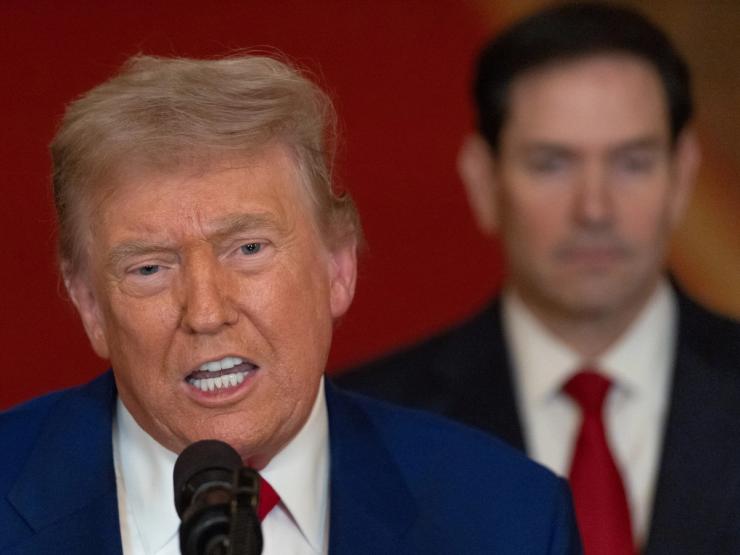The News
The Trump administration is bracing for potential Iranian retaliation against US troops after President Donald Trump launched strikes on three nuclear facilities over the weekend.
At the moment, concerns are primarily focused on the potential risk to the 40,000-plus US troops stationed throughout the Middle East, one person familiar with internal administration conversations told Semafor. Any response from Iran, however, would likely force the administration to commit further to a conflict that Trump had hoped to disengage from after the Saturday night strikes.
Preparations for a possible Iranian attack began earlier this month, when the State Department ordered all nonessential personnel to leave its embassy in Baghdad.
After last night’s strikes, family members and non-emergency government personnel were ordered to depart from Lebanon, and the State Department issued advisories for personnel in countries in the region. The administration has also sent additional air defenses to the region over the last few days in anticipation of a potential response.
On Sunday, Secretary of State Marco Rubio confirmed the US would respond should Iran go after US bases or troops.
“They’ll attack our bases, and those are our bases, and we’re going to defend our people and we’re prepared to do that,” he said on CBS News’ Face the Nation. “But we’ll do more than just defend: We’ll impose costs on Iran if they attack American personnel, whether they do it directly or whether they do it through some of these proxies they try to hide behind.”
Another question weighing on the administration, particularly if Iran chooses not to negotiate on its nuclear program, is how long Israel can sustain its attacks against Iran.
Israel is “running out of certain types of ammunition, and they can’t sustain their operations at current tempo for much longer,” according to the person familiar with ongoing conversations within the administration. (Israel recently denied reports that it’s running low on air defense interceptors.)
The supply of critical munitions is also said to be a concern for the United States, Semafor recently reported — and the administration is aware of that constraint on resources as it maps out next steps.
The administration is keeping an eye on other potential Iranian efforts to strike back. Among them is the threat of “low-level” cyber attacks by Iranian hacktivists, another person close to the administration told Semafor.
The Department of Homeland Security issued an advisory on Sunday warning of that possibility, and forecasting a higher likelihood of extremist attacks should leadership in Iran issue “a religious ruling calling for retaliatory violence.”
Attacks on the US would “be highly escalatory,” the person familiar with internal conversations noted — though if the conflict in the region escalates, the possibility of that may also rise, pulling Trump further into the war.
Know More
The administration has said it wants to shift back to diplomacy after this weekend’s attacks — though they’re issuing plenty of warnings aimed at deterring Iran from responding: Trump, in his address to the nation Saturday night, warned that going forward “there will be either peace or there will be tragedy for Iran.”
And while Vance said Sunday morning that the US is not looking for regime change, Trump later on suggested he could be okay with it: On his Truth Social page, the president wrote that “if the current Iranian Regime is unable to MAKE IRAN GREAT AGAIN, why wouldn’t there be a Regime change???”
Trump’s decision to strike three of Iran’s nuclear facilities came after days of internal talks — and the possibility split his MAGA movement leading up to his decision.
The administration is still assessing the success of its operation, the Pentagon noted Sunday, even as Trump declared that the strikes “completely and totally obliterated” Iran’s nuclear sites


